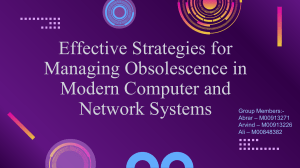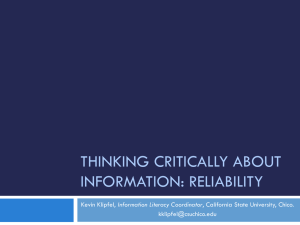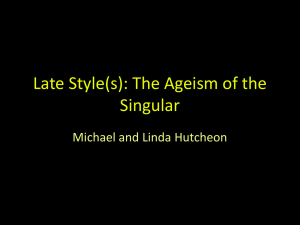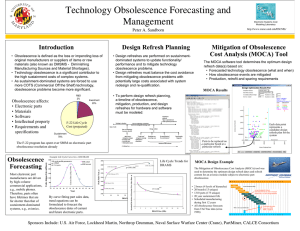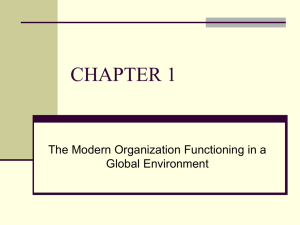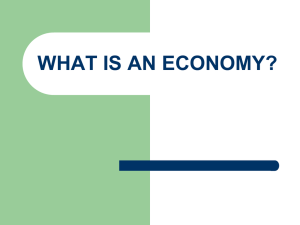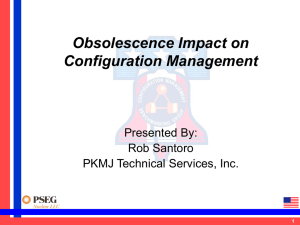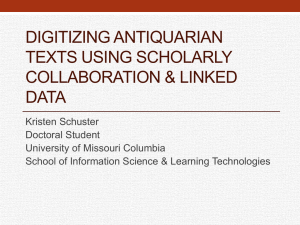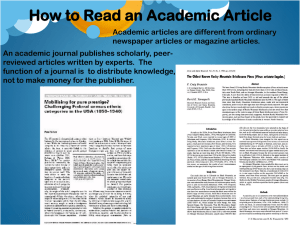Fitzpatrick_K_Planned_obsolescence
advertisement
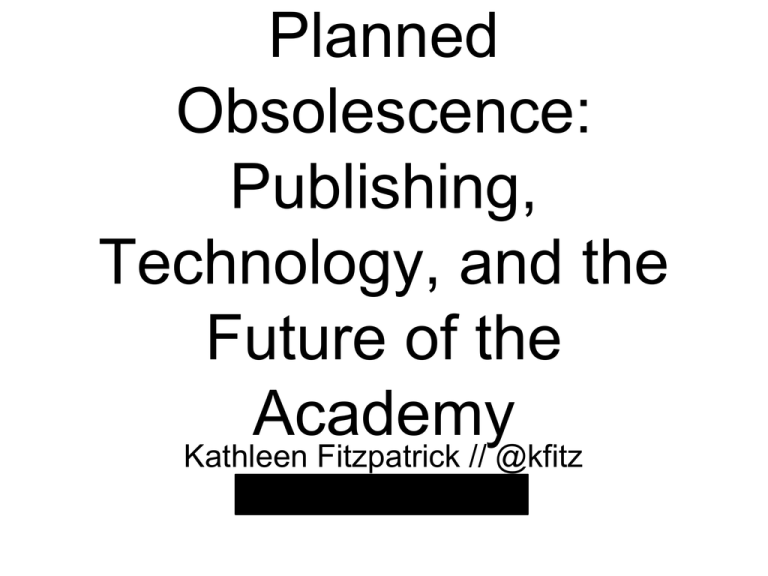
Planned Obsolescence: Publishing, Technology, and the Future of the Academy Kathleen Fitzpatrick // @kfitz kfitzpatrick@mla.org “In many cases, traditions last not because they are excellent, but because influential people are averse to change and because of the sheer burdens of transition to a better state.” — Cass Sunstein, Infotopia “There is no way to stop the shake-up of the university press system from happening. It has already begun.” — Lindsay Waters, Enemies of Promise obsolescence death The Anxiety of Obsolescence death of the novel cultural wildlife preserve dot-com crash “too much financial risk... to pursue in the current economy” — the marketing guys “They were planning on making money off of your book?” — Mom insupportable economic model university presses university libraries rising costs of journals collection sharing one-third subsidies reduced number of titles published marketing the crisis in academic publishing the academic book no longer viable but still required undead zombie death-in-livelihood really? undead material ink-on-paper pixels-on-screens print fraction digital material obsolescence persistences ephemeral durability archives interaction institutional system “In fact I completely understand why that’s not realistic, and I’m not seriously advocating it. Nor am I suggesting that we all become our own online publishers, at least not unless that’s part of a continuum of different options. But the point is, the system’s broken and it’s time we got busy fixing it. What ought to count is peer review and scholarly merit, not the physical form in which the text is ultimately delivered.” — Matt Kirschenbaum scholarly publishing consider articles published by tenure candidates as seriously as books acknowledge and fairly evaluate online scholarship easier said than done MediaCommons MediaCommons Planned Obsolescence John Willinsky, The Access Principle Christine Borgman, Scholarship in the Digital Age conservative We Have Never Done It That Way Before “While we are very adept at discussing the texts of novels, plays, poems, film, advertising, and even television shows, we are usually very reticent, if not wholly unwilling, to examine the textuality of our own profession, its scripts, values, biases, and behavioral norms.” — Donald Hall self-criticism change social, intellectual and institutional change cost access the ways we research the ways we write the ways we review peer review peer review but “What ought to count is peer review and scholarly merit, not the physical form in which the text is ultimately delivered.” disciplinary technology self-policing gatekeeping scarcity is over plenitude create artificial scarcity coping with abundance impact post-publication whether a text should be published how it has been (and should be) received from regulation to communication facilitating “peer-to-peer review” “the new metrics of scholarly authority” — Michael Jensen scarcity filters 31,650+ pageloads 12,100+ first-time visitors 3370+ return visitors 295 comments 44 commenters 400 “publication” authorship products processes community “We know now that a text consists not of a line of words, released a single ‘theological’ meaning (the ‘message’ of the Author-God), but of a multidimensional space in which are married and contested several writings, none of which is original: the text is a fabric of quotations, resulting from a thousand sources of culture.” — Roland Barthes interaction process control collaborative originality remix publishers libraries universities knowledge production obsolescence response undead change thanks! Kathleen Fitzpatrick // @kfitz kfitzpatrick@mla.org

